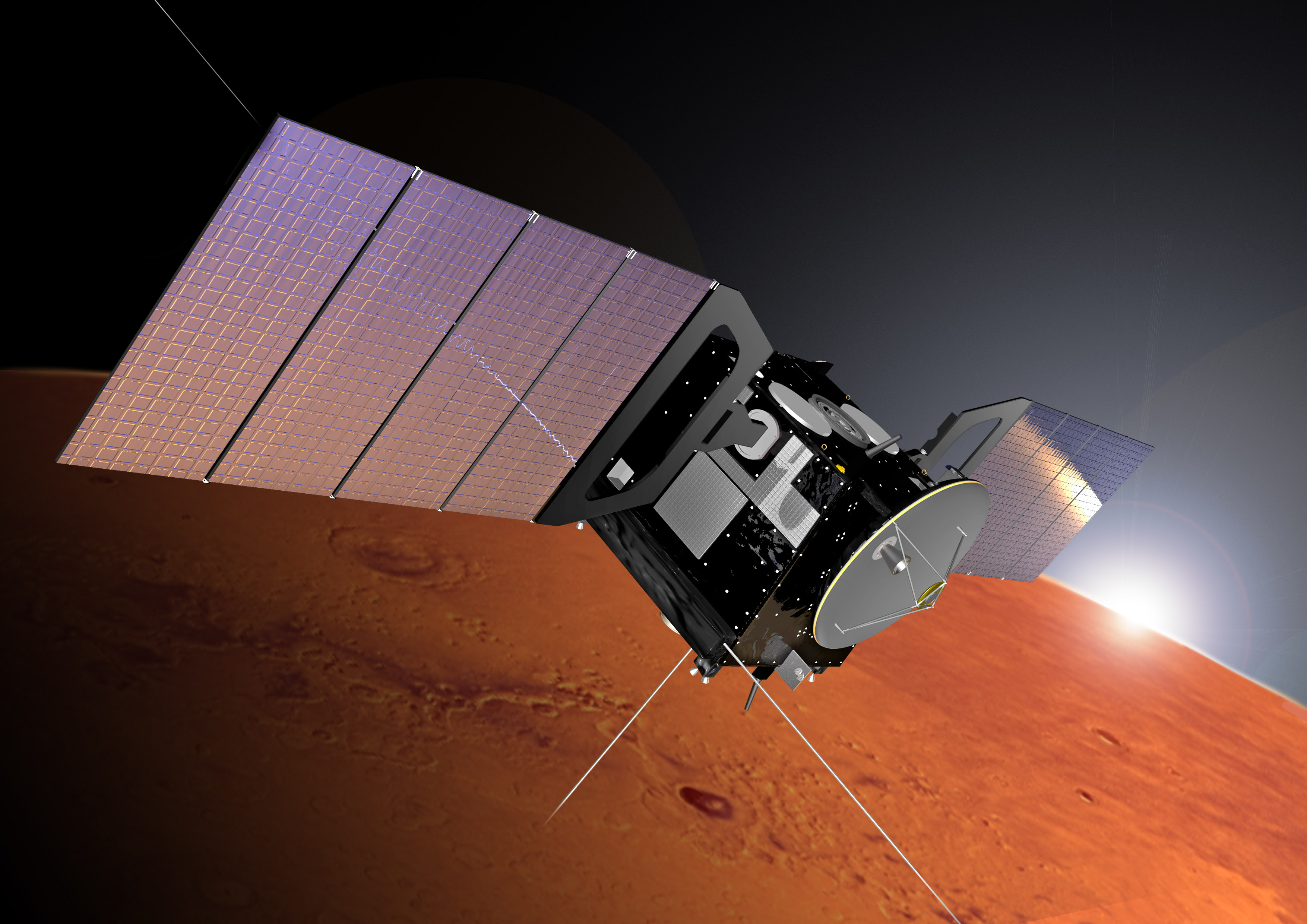Ground controllers are receiving data packets from Mars Express via a ground station in Cebreros, Spain,
but it will take another half-hour or so to make sense of the results.
Paolo Ferri, head of ESA's mission operations department, told reporters a few minutes ago that the radio telescope array in Pune,
India, received the carrier beacon from Schiaparelli for the majority of its descent, but the signal was weak, as expected.
The capability to monitor Schiaparelli's landing in real-time via the Indian telescope was thought to be purely experimental,
and potentially unreliable. It was not required, but nice to have.
"We had the signal for a long time, so definitely we could follow the majority of the descent," Ferri said. "It's very difficult
to say at what point (we lost the signal).
"There will be a chance certainly with Mars Express to look in detail at the Doppler (data) and then identify the range in the Doppler.
At a minimum, with the Mars Express signal ... we can deduce the actual timeline of the descent. The majority of the descent was followed.
We saw the signal for a large number of minutes."
